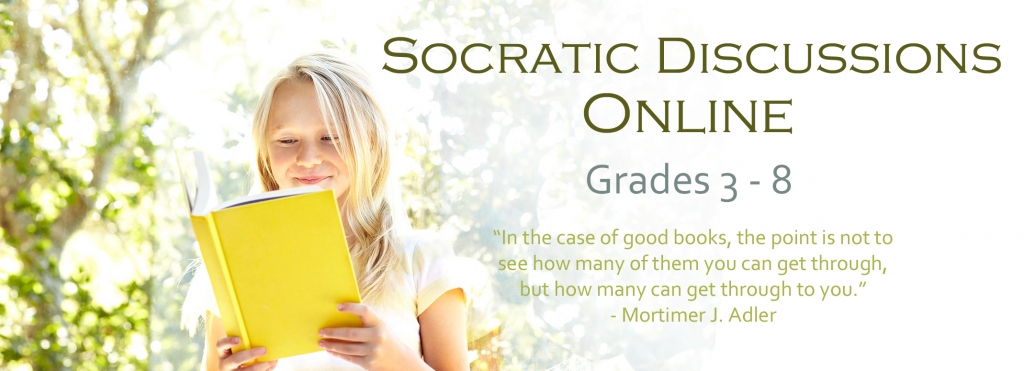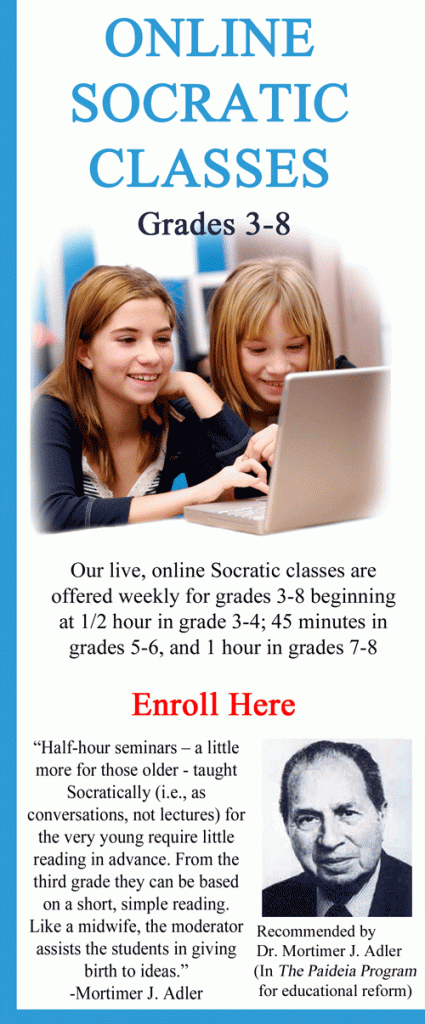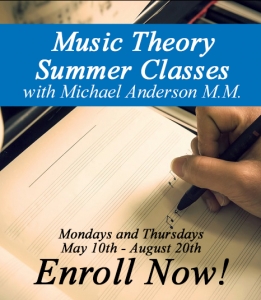“We are tied down, all our days and for the greater part of our day, to the commonplace. That is where contact with the great thinkers, great literature helps. In their company we are still in the ordinary world, but it is the ordinary world transfigured and seen through the eyes of wisdom and genius. And some of their genius becomes ours. . .” – Mortimer J. Adler
“My son is involved in the Socratic Discussion. The group he is involved in is the 3rd grade group. It has helped him to be more confident and secure in expressing his thoughts about things. He would always look to us after making a comment on something and say “Am I right?” Now he makes a statement about something and has more confidence in his answers and ability to think for himself. This new ability for him has lead us into some very interesting conversations, whereas before he would just listen and not express any thoughts on the subject. I would recommend it for anyone, child as well as adult. . . ” – Parent of a 3rd grader
Parents sometimes assume young students will just naturally learn to think and speak properly, logically, coherently, and politely – that is rarely the case – even more rarely when they disagree or engage in argument or debate.
Our live, online Socratic classes are the perfect preparation to get the most out of our high school Great Books Program. The weekly, live Socratic classes train the students in the classical trivium, beginning in 3rd grade through 8th grade.
Dialectics – a method of argument for resolving disagreement that has been central to European and Indian philosophy since antiquity. The word dialectic originated in ancient Greece and was made popular by Plato and the Socratic dialogues. The dialectical method is conversation between two or more people holding different points of view about a subject, who wish to establish the truth of the matter guided by reasoned (logical) arguments and critical thinking.
- Rhetoric – the art or skill of speaking formally, politely, effectively and confidently, especially as a way to persuade or influence people towards the truth.
- Grammar – the set of structural rules that govern the composition of phrases, clauses and words.
- Enrollment in these classes doubled over last year – sign up now before the classes fill!
When Do Classes Start? Weekly classes start the first week of September and the second week of January. The students in our Socratic Classes for Grades 3-8 read many different kinds of texts. All of the readings are short, generally no more than a page or two. In the lower grades many of the readings are folk tales from around the world. These stories are always about one or more common human ideas or common human experience. For instance, in 3rd grade the students read a story from Latvia titled They Share the Work. What is it about? The story centers on the activities of planting, harvesting, watching. There is much else involved in those activities – responsibility, patience, industriousness, expectation, disappointment, anger, and how different people may have different ideas about what it means to share.
When are the Classes Held? The grades 3 – 8 Socratic Discussions are held on Mondays. The first classes for grades 3 through 8 will be on September 10, 2018. Class dates are every Monday from September 10th through May 13, 2019 (excluding Christmas Break, Spring Break, Martin Luther King Day and President’s Day).
How Long Are the Classes? We ask that students arrive in the classroom about 10 minutes prior to class time to enable us to make sure that everyone can hear and be heard. This also gives the students some time to visit with one another prior to the start of class. So the students are together for longer than the official length of classes stated below. Also, at times the classes run a bit longer than the official time but students are of course free to leave whenever they must. All classes are weekly.
- 3rd grade and 4th grade classes are 40 minutes long.
- 5th and 6th grade classes are 50 minutes long.
- 7th and 8th grade classes are 60 minutes long.
What Are the Readings? As the students progress into the higher grades there are more readings that are excerpts of great works about ancient history, civics, and the humanities. As an example, 8th grade students may read an excerpt from The Republic, by Plato; an excerpt of The Prince by Machiavelli; or a section of Augustine’s Confessions. Prior to each discussion the students receive an e-mail that gives them the reading/thinking assignment. The e-mail also contains some questions for the students to ponder and wonder about after having read the text. It is this reading and thinking that constitutes the students’ preparation for the discussions.
Can We Start Anytime? Yes, we are flexible with parents and students. If you wish to join during the school year, we are happy to have you join a class (provided there is room in the classroom). Your tuition would be pro-rated based on when you join us. We would be happy to discuss our classes with you. Please give us a call at 410-282-6215.
How Much Does it Cost? A family discount of 30% off is applied for two or more children enrolling in our online classes. Please enroll at the links below.
How Do the Classes Work? The online classroom software that we use works very well for our live-audio discussions. It is a professional, virtual classroom and a real-time online collaboration environment designed for discussions over the Internet. Our live, online classes and discussions often take place with students from all over the world. You can even join one of the classes from your Android smart phone or tablet! Join our online classes from your Android mobile device, laptop or home computer!









